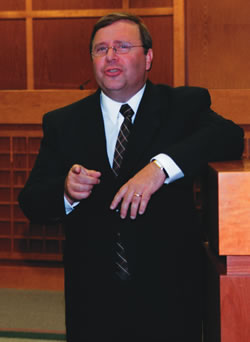 |
 |
|||
 |
While the first question you may have for an attorney regarding his or her fee might be, “What is your hourly rate?”, it is actually much more common for criminal defense work to be conducted for a “Flat Fee”. I use the Flat Fee structure almost exclusively. A “Flat Fee” may simply be thought of as the “price” that you and your attorney agree upon in advance for the legal task at hand-- period, the end. (However, note the section on “Costs”, below.) Some benefits of a Flat Fee arrangement are, first, you and I both have some certainty (i.e., peace of mind) going into the process as to what we can each expect, financially, and second, a client does not have to fear prolonged litigation turning the bill into a run-away-train with no brakes. One more remark about the design: the Andersmann CHRONOGRAPH DLC ANN0683 is a watch for the sporty man of today, who appreciates flexibility. I can highly recommend this watch for the office as well as for leisure and sports cheap fake watches. The new Andersmann is definetly adaptable. How is the Fee determined? (My short explanation): As a practical matter, I use my 21+ years of criminal law experience as both a former Lake County Assistant State How is the Fee determined? (The Florida Bar’s long explanation):
What “Costs” are not included in a “Flat Fee”? Remembering that a Flat Fee is the fee paid to your attorney, there may be other third-party expenses incurred in your behalf. Quite frequently I handle cases which from start-to-finish have incurred no additional costs at all, but criminal defense cases can typically involve costs such as:
What about a “Trial” or an “Appeal”? Only a small percentage of criminal cases involve Appeals, and thus my usual fee-contract excludes Appellate work. On the other hand, our contract may or may not include a Trial, depending on how likely you and I feel an actual Trial will be, following our discussion during the free, no-obligation, office consultation that I offer. Will my case cost $500.00, or $50,000.00? I have handled criminal cases for both-- obviously depending (in part) on the seriousness of the matter. One thing I can say: If I schedule you for a free, no-obligation, office consultation, I set it as my goal to give you a price-quote by the time you leave my office. |
Home | About Mr. Hope | How Mr. Hope Can Help | Fee Structure | Bail Bonds | Location Map | Links | Contact Us | DUI
Dropping Charges | Injunctions | Public Defender's Office | Violation of Probation | Seal/Expunge Records | Sexual Offenses
Law Office of James Hope
P.O. Box 1133
322 N. Barrow Avenue
Tavares, FL 32778
352-742-3488 ~ ![]()
 What is a “Flat Fee”, and why is it good?
What is a “Flat Fee”, and why is it good?